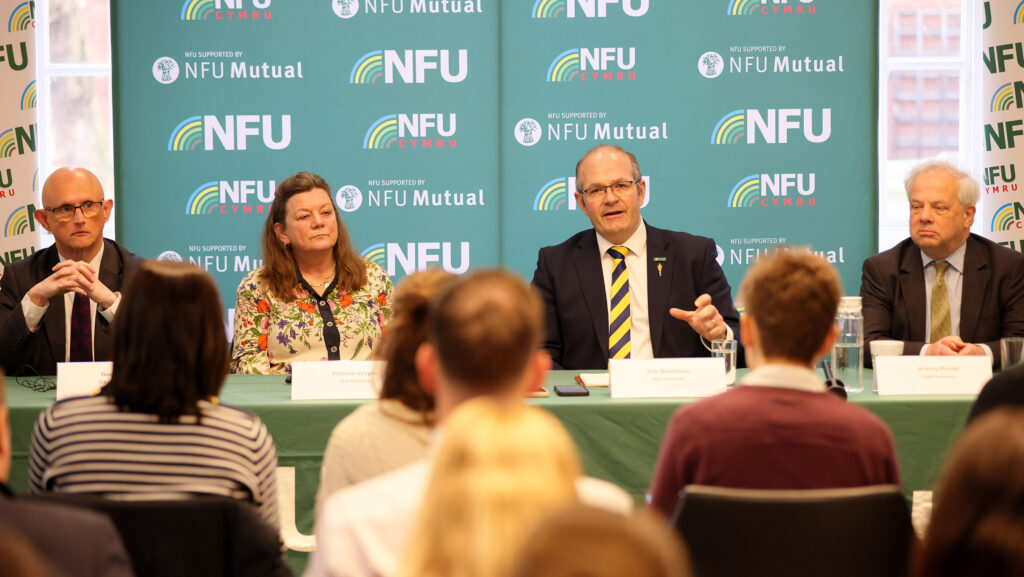Editor’s View: New low with Treasury – but we can’t give up
 (L-R) George Dunn, Tenant Farmers Association, Victoria Vyvyan, Country Land and Business Association, NFU President Tom Bradshaw, Jeremy Moody, The Central Association for Agricultural Valuers.
© Lloyd Sturdy/NFU
(L-R) George Dunn, Tenant Farmers Association, Victoria Vyvyan, Country Land and Business Association, NFU President Tom Bradshaw, Jeremy Moody, The Central Association for Agricultural Valuers.
© Lloyd Sturdy/NFU This week marked a new low in the relationship between Labour and farm lobbyists.
Representatives of the NFU, Country Land and Business Association, Tenant Farmers Association and the Central Association of Agricultural Valuers – who collectively represent owner-occupiers, landlords, tenants and the agents in between – emerged at a press conference on Tuesday morning (18 February), angry and downhearted by their conversation with the Treasury.
These unions went in with an alternative suggestion that – according to their estimates – would have raised an amount similar to the figure the Labour Party are intending to raise with their brutal changes to the current inheritance tax (IHT) reliefs.
See also: ‘Look us in the eye’ – NFU challenges chancellor on farm IHT
The proposal said tax should be levied only at the moment a farming business is sold, rather than when it is passed on via succession. And they were completely rebuffed.
Why? At best, the relationship between a government minister and a lobbyist is one of mutual convenience.
The purpose of a politician is to identify what is wrong with the status quo, find a solution and plot a path to get there.
Lobbyists are one of a select group of tour guides that are trying to influence thinking at each of those three steps, along with ordinary voters, think tanks, special advisers, political party factions, departmental advisers and others.
Clever lobbyists aren’t too dogmatic – they are often willing to compromise to get half of their wishlist, rather than strive for purity and get nothing. They are also a useful sounding board to warn politicians when they are making a mistake.
Clever politicians don’t shut lobbyists out – they recognise the prejudices they hold and assess accordingly.
Sometimes policy is crafted like a soup – putting in a bit from everyone to enhance the flavour, while no single group dominates. Think of the co-design model of some environmental schemes.
Absolutely no one who has studied the proposed changes thinks this is a good idea. Even those who want IHT reform think it should be done differently.
At other times, it is more like choosing a joint for roasting – picking one type of meat for the table and shunning all the others. This is the category IHT falls into.
What makes this such an infuriating situation is that it isn’t the normal tale of a lobbying battle being lost in favour of another pressure group.
Absolutely no one who has studied the proposed changes thinks this is a good idea. Even those who want IHT reform think it should be done differently.
To continue the cooking metaphor, head chef chancellor Rachel Reeves has put a hand grenade in the oven for supper.
The farm unions have offered her a decent rib of beef as an alternative – but she won’t even let them into the kitchen.
As it stands, there is no prediction of future harm that is detailed enough, dire enough, independent enough or noisy enough for them to listen.
Lobbying is also the art of not giving up, but instead keeping going until something changes.
That will be the work of the organisations above – and indeed the whole sector, which has come out against this. What else can we do when we’re inside the blast radius?

